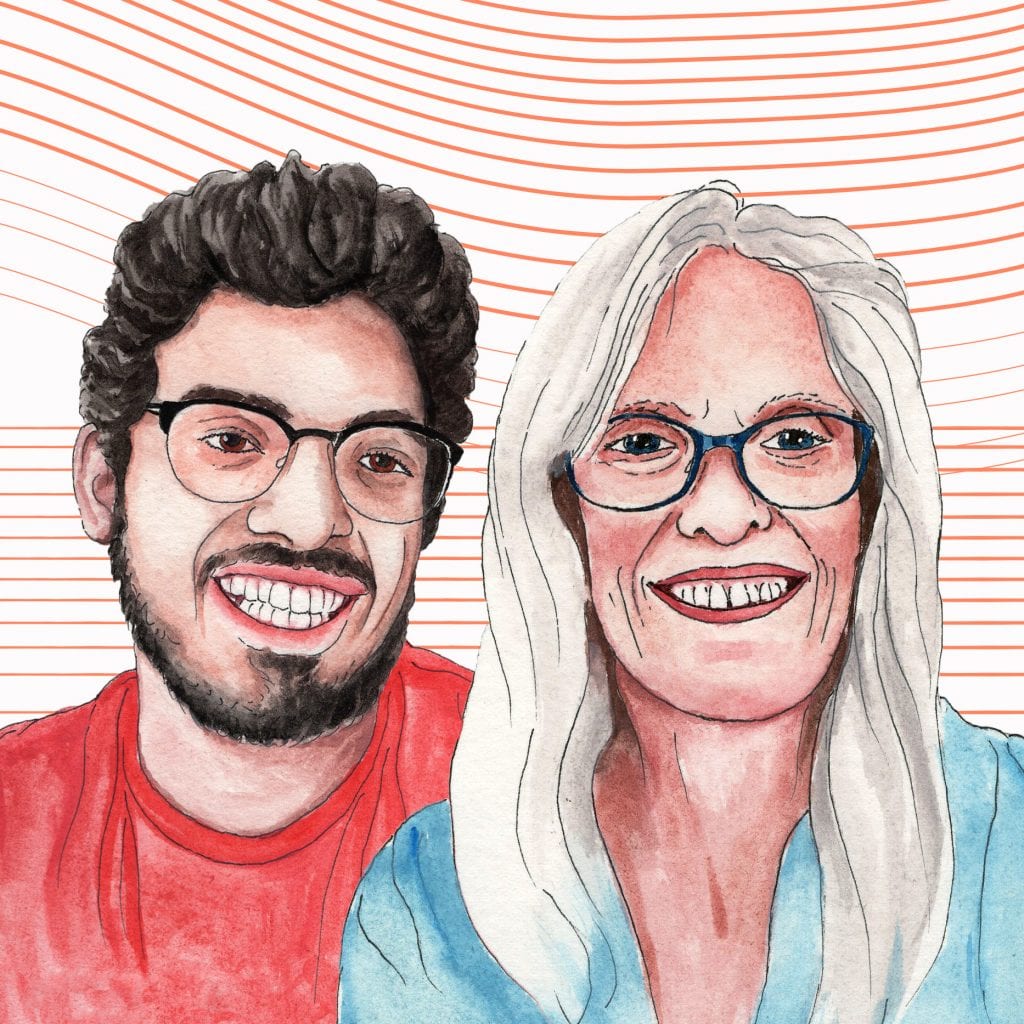In conversation
 17-year-old Taha Vahanvaty and his advisor, Cynthia Crowner, discuss the work that Taha has done with The Acceptance Project or TAP, which creates a space for students of different social or political beliefs to have conversations. Taha is a high school senior in Stroudsburg, Penn. Cynthia is a retired Presbyterian minister and the advisor to TAP.
17-year-old Taha Vahanvaty and his advisor, Cynthia Crowner, discuss the work that Taha has done with The Acceptance Project or TAP, which creates a space for students of different social or political beliefs to have conversations. Taha is a high school senior in Stroudsburg, Penn. Cynthia is a retired Presbyterian minister and the advisor to TAP.
Transcript
Cynthia: Taha, I remember back in 2016, the day after the election, your high school kind of erupted and that led to your taking some responsibility for pulling people together. You were in eighth grade then, I think.
Taha: Yeah. The reason I started TAP was I was angry about President Trump getting elected and I was like, how can I get like-minded students together? And we essentially just talked about how much we hated Trump. As the year went on, I began to realize that really didn’t do anything for anybody. And I began broadening my horizon.
I was like, well, the students that are still wearing the MAGA caps are gonna continue wearing the MAGA caps regardless of how many times my group meets. So why don’t we actually try sitting down with them? And that’s really where I think TAP began forming what it is today, which is students from diametrically opposed sides, beliefs, and values have the opportunity, time, and environment to engage in a conversation.
Today, TAP is an organization with 120 plus students. And we’re spreading across the county and we’re training students how to lead these conversations to help students develop the courage to continue these conversations outside of our club.
Cynthia: It’s amazing to watch you work because you really give everybody an opportunity to speak. And at the end of any conversation, no matter how controversial it is—about gay rights or abortion or immigration—I never know where you stand. I think that frees the students to be honest about where they stand and to really listen to each other.
Taha: Well, thank you, Cindy, I’m very flattered. At the end of the day, what you have is your beliefs, your ideas, and your values. Nobody in the group can take that away from a student and no student can take that away from me. That made me feel a lot more confident and that’s helped a lot with approaching my vulnerability with a group of strangers and even more so with students that I know and expressing what a lot of my maybe unconventional values and beliefs and ideas are.
Cynthia: I want to know what about your family or maybe your faith made you feel like I can start something brand new at my school?
Taha: I’m very religious and my faith is a big part of my identity. My faith and The Acceptance Project has led me to believe that whole concept of we are not in this conversation to change anybody’s mind and we are not in a conversation to flip our opinions or flip our views. In fact, we’re in here to learn more about our opinions and learn more about our views and learn more about ideas. There’s a lot that I can learn about my faith and my identity through other faiths and identities. And that’s a really, really beautiful narrative that you can talk about because that just shows how interconnected and interwoven all of us are from our own stories, from our own lives, and from our own beliefs.





